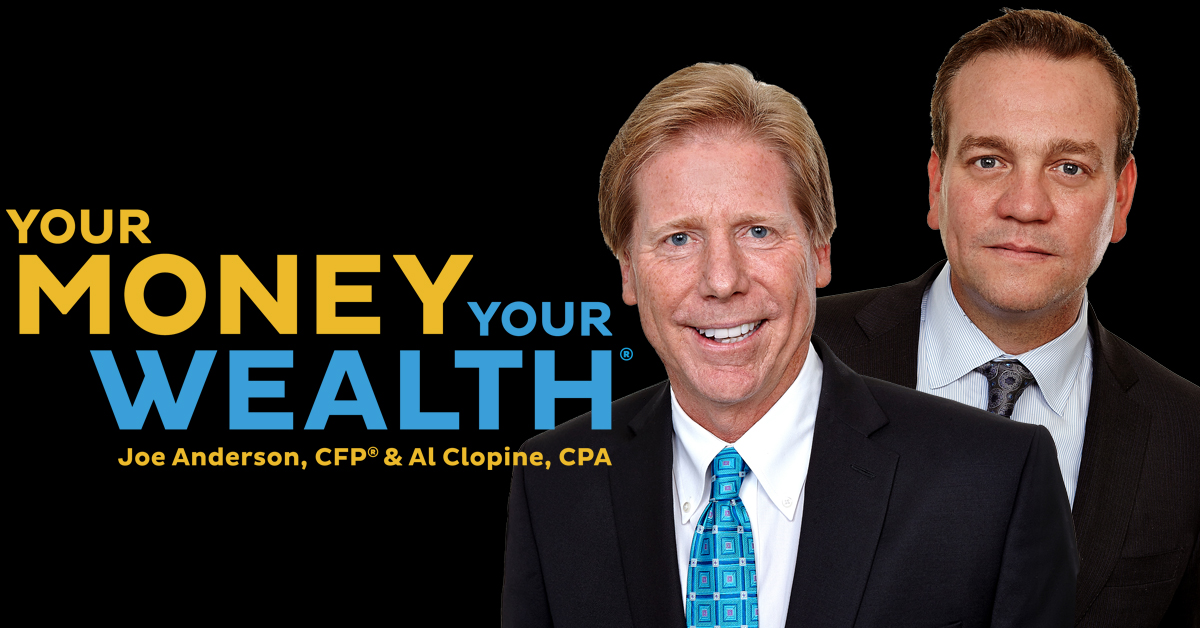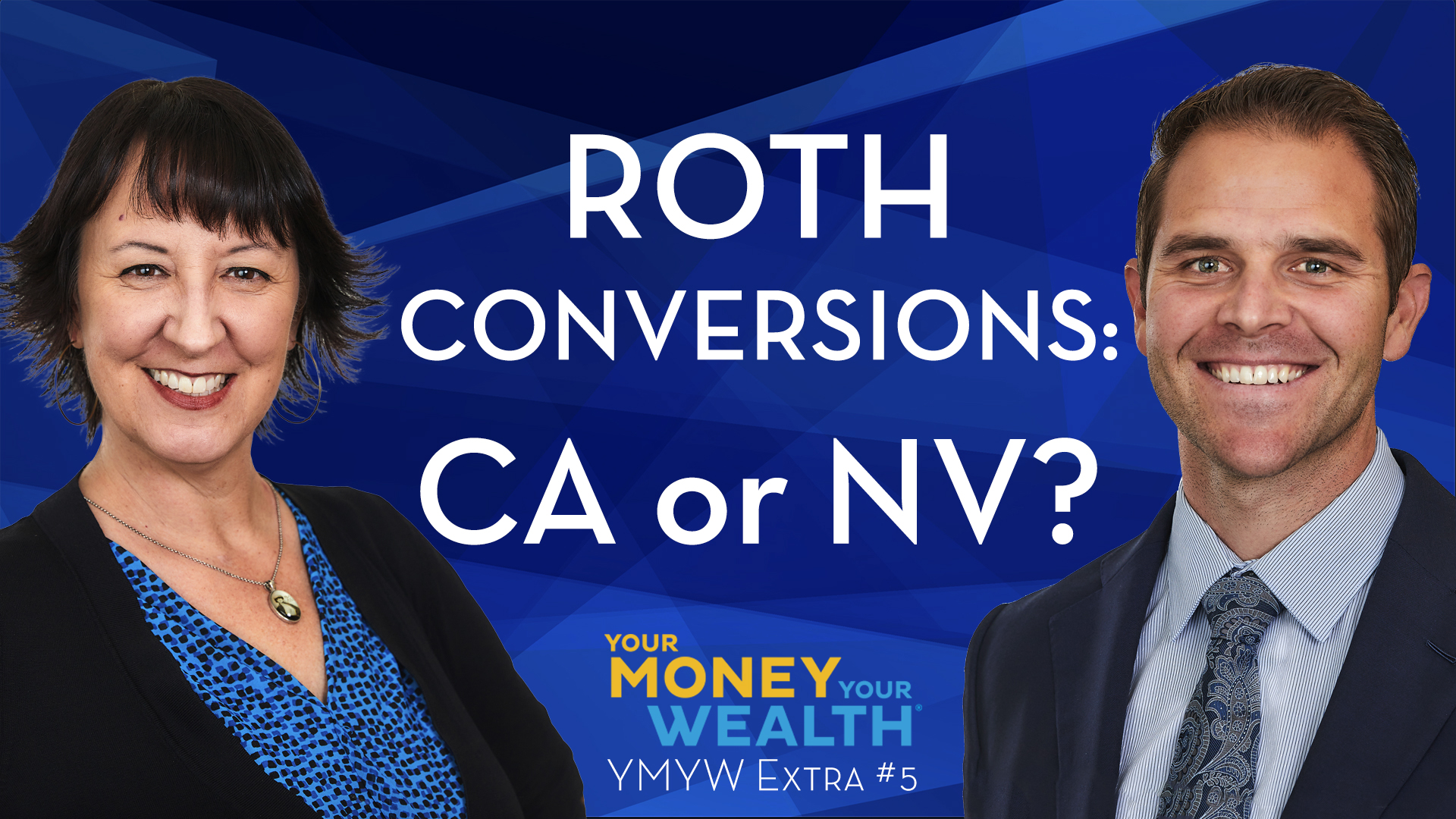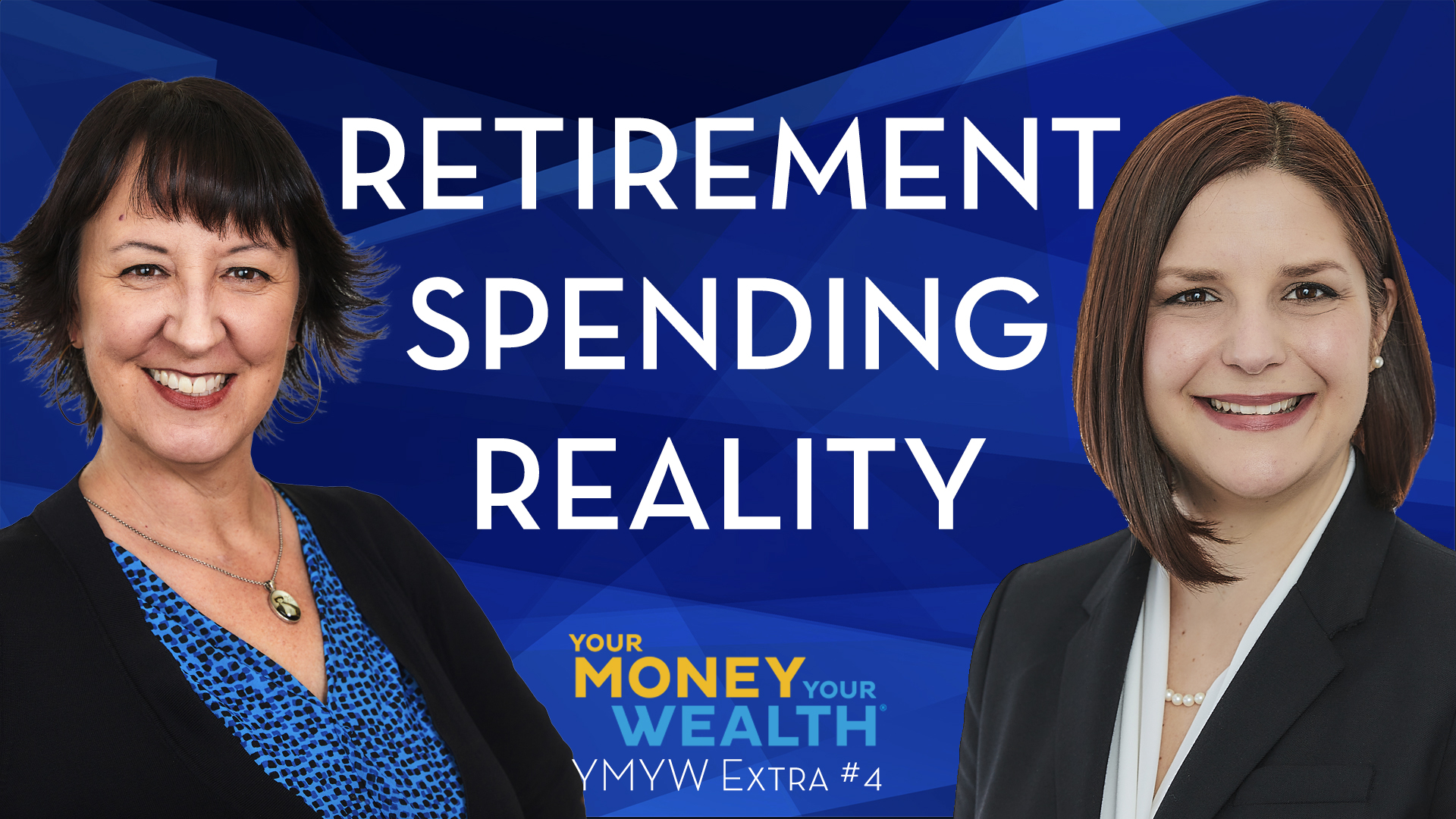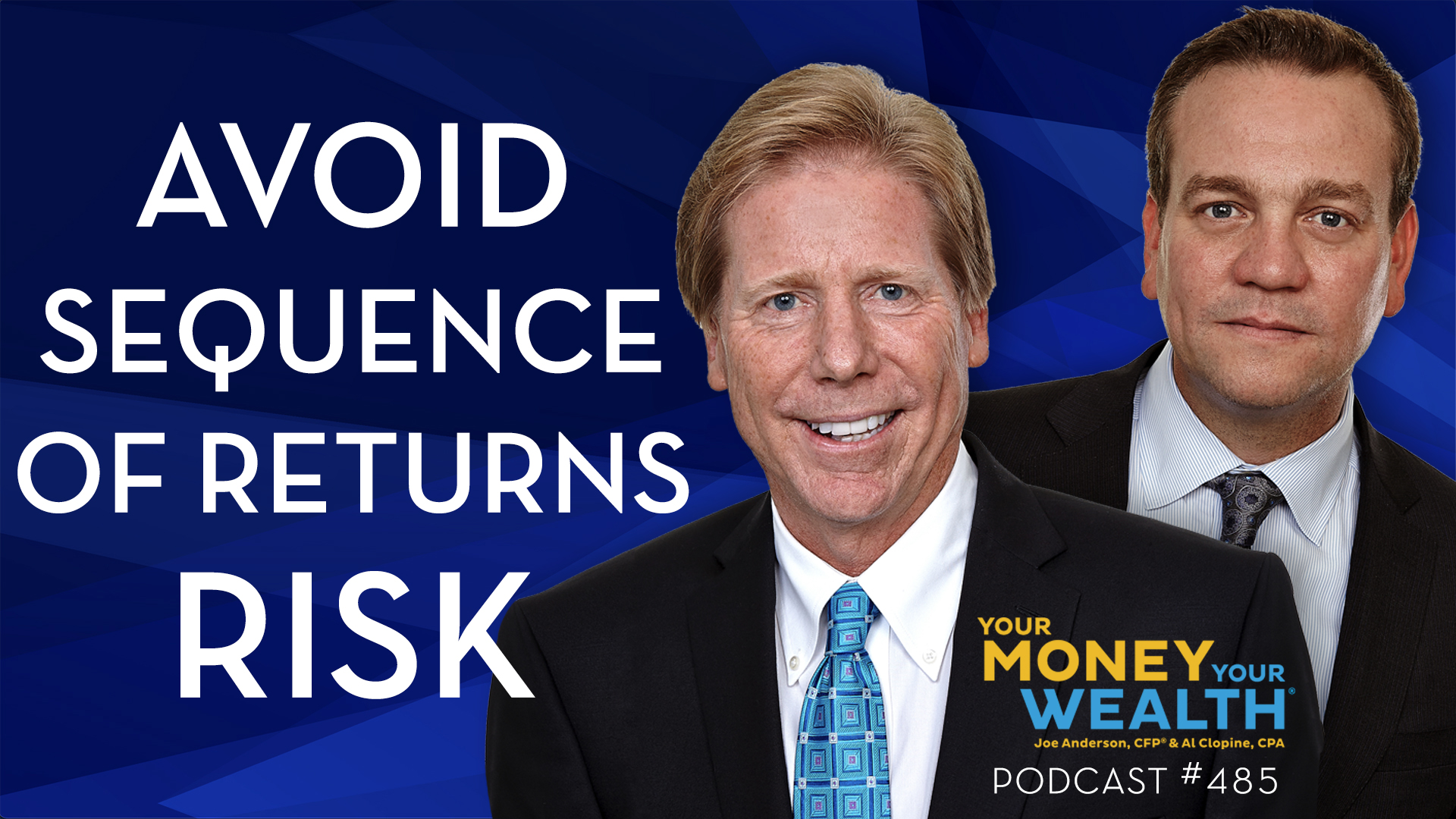Recent Podcasts

Should Terry and his siblings take out a whole life insurance policy on their parents before they inherit their folks’ $10 million worth of farmland? Is Terry on track for retirement? Plus, should Fred and Wilma use their 401(k) money for living expenses to bridge the gap until they collect...

How is Kimberly’s strategy for reducing her retirement taxes by doing Roth conversions and qualified charitable distributions? Is Patrick’s tax loss harvesting transaction a wash sale? At what marginal tax rate should Brian stop making Roth 401(k) contributions? Joe and Big Al are back this week to answer these questions....

He’s 56, she’s 32. How does this 24-year age difference impact retirement plans for “Bonnie and Clyde”, and what strategies should they implement now for the most tax-efficient retirement possible in the future? While Joe Anderson, CFP® and Big Al Clopine, CPA are on vacation, Your Money, Your Wealth® podcast...
More Podcasts
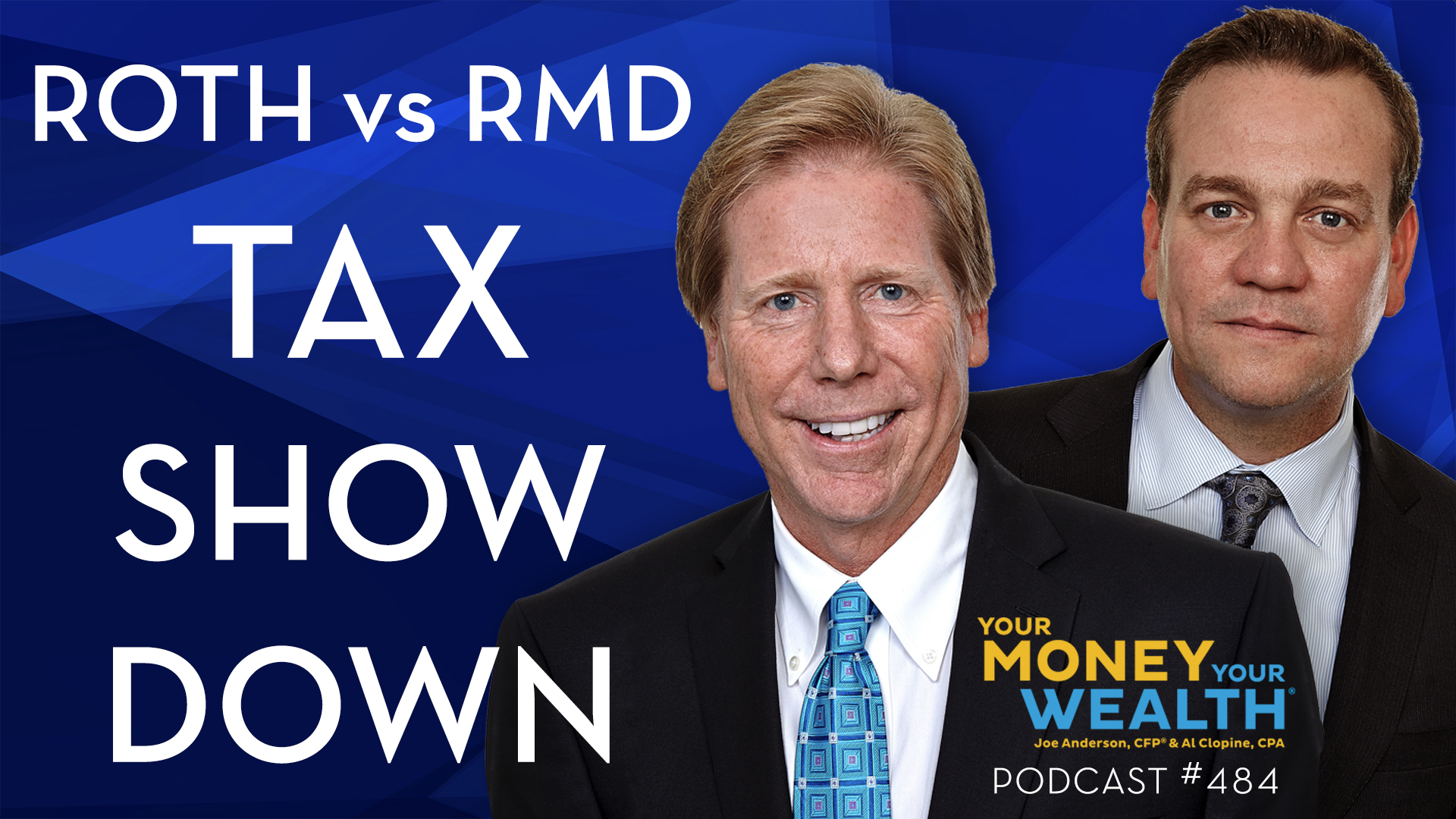
Should Mike in Virginia keep using his IRA money to pay the tax on his Roth conversions? How do you do a Roth conversion when you don’t have the money to pay the tax? That’s PeterLemonJello’s question, but is it the question he should be asking? Spitballing Roth IRA conversion strategies to reduce your taxable required minimum distributions (RMD) in retirement, today on Your Money, Your Wealth® podcast 484. Plus, Susan and Mike in Ohio are retired, in the 24% tax bracket, and considering converting $50k or $75k to Roth – should they do it? How is D-Rock and Matilda’s strategy for selling rental properties and doing Roth conversions as they bridge the gap to early retirement? And finally, how do required minimum distributions work on inherited Roth accounts?
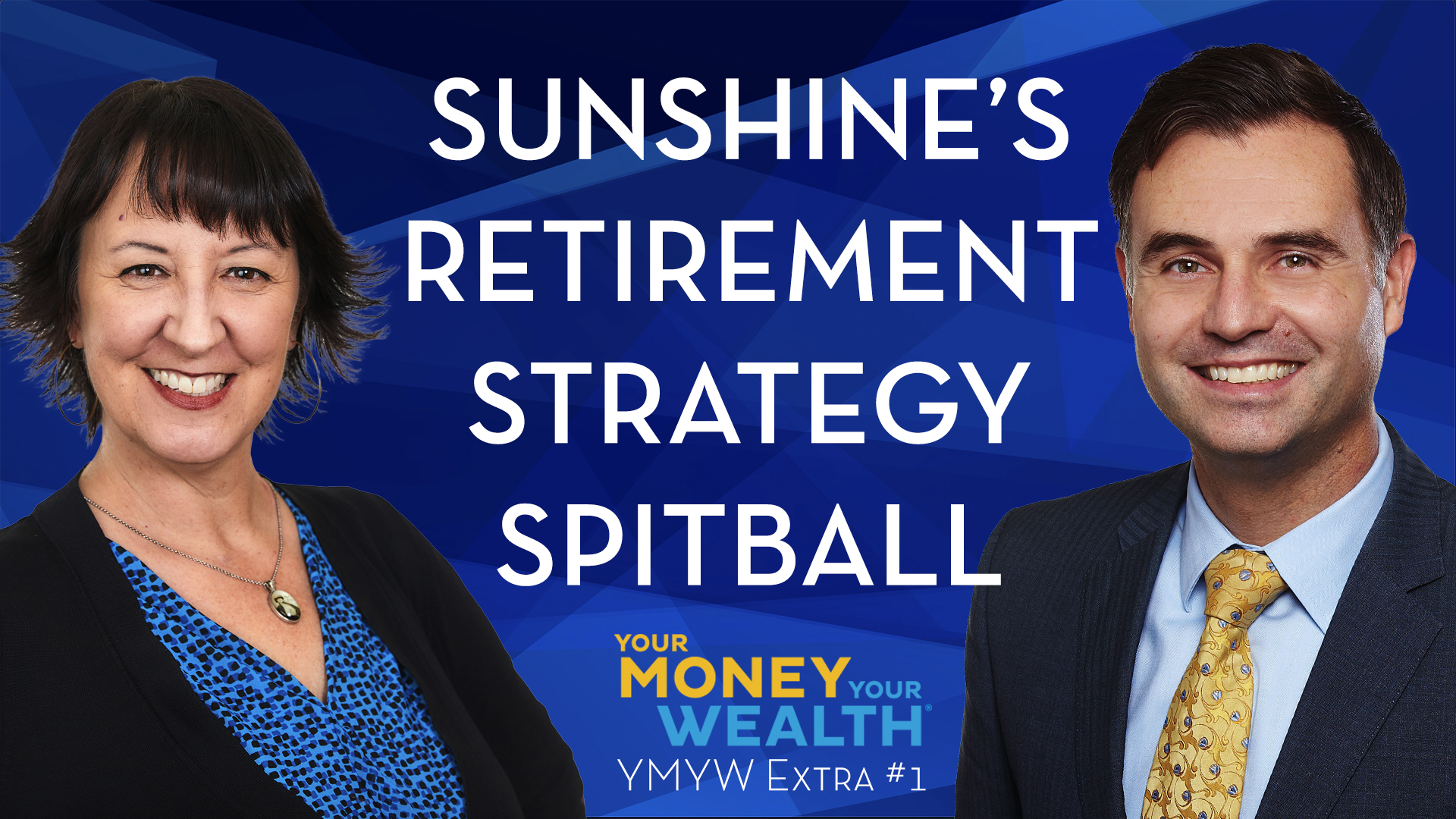
Sunshine in Orange County has been waiting patiently since January for a full Retirement Spitball Analysis: how are her assumptions for rates of return and inflation, her plans for Roth conversions, her asset allocation and asset location, her tax planning, her retirement income and retirement spending plans, and so much more? What missed opportunities is she overlooking?
So many excellent Retirement Spitball requests have come in that Your Money, Your Wealth® hosts, Joe Anderson CFP®, and Big Al Clopine CPA can’t handle them all.
On these bonus episodes, called YMYW Extra, producer Andi Last enlists the help of the experienced professionals on Joe and Big Al’s team at Pure Financial Advisors. In today’s YMYW Extra number 1, thanks to David Cook, CFP® from Pure Financial’s San Diego headquarters, Sunshine finally gets her Retirement Spitball Analysis.
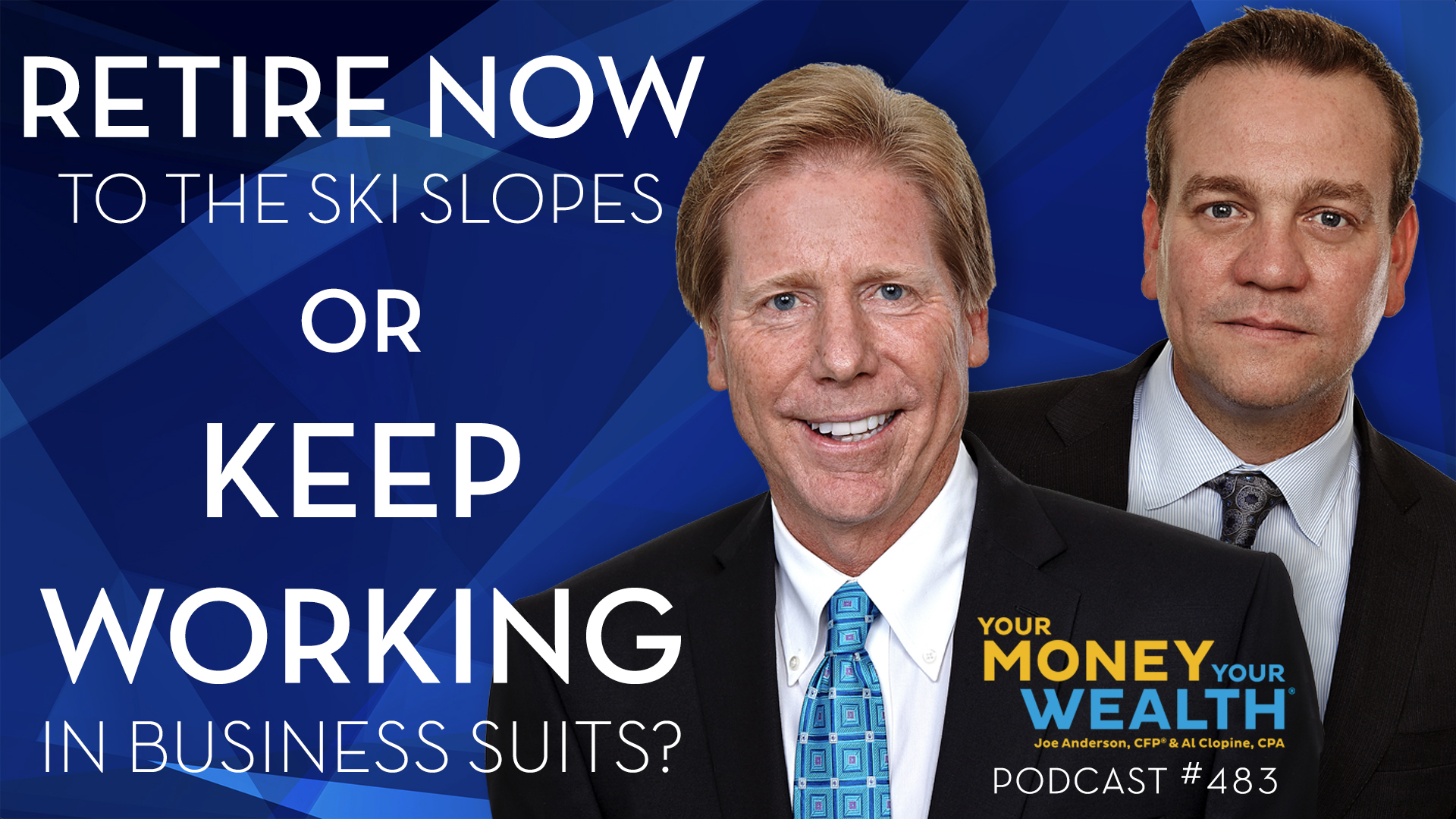
Are women better investors and financial planners? Today on YMYW, three different husbands want to retire, while their wives feel they need to work longer. Can Jack and Diane, Mark and Belle, and Mike and his wife hit the slopes now, or do they need to keep wearing their suits? Joe and Big Al spitball on who’s right. Plus, should Ellie take her pension in a lump sum or in monthly annuity payments? The fellas also consider a solo 401(k) contribution strategy for self-employed types from our buddy Will.
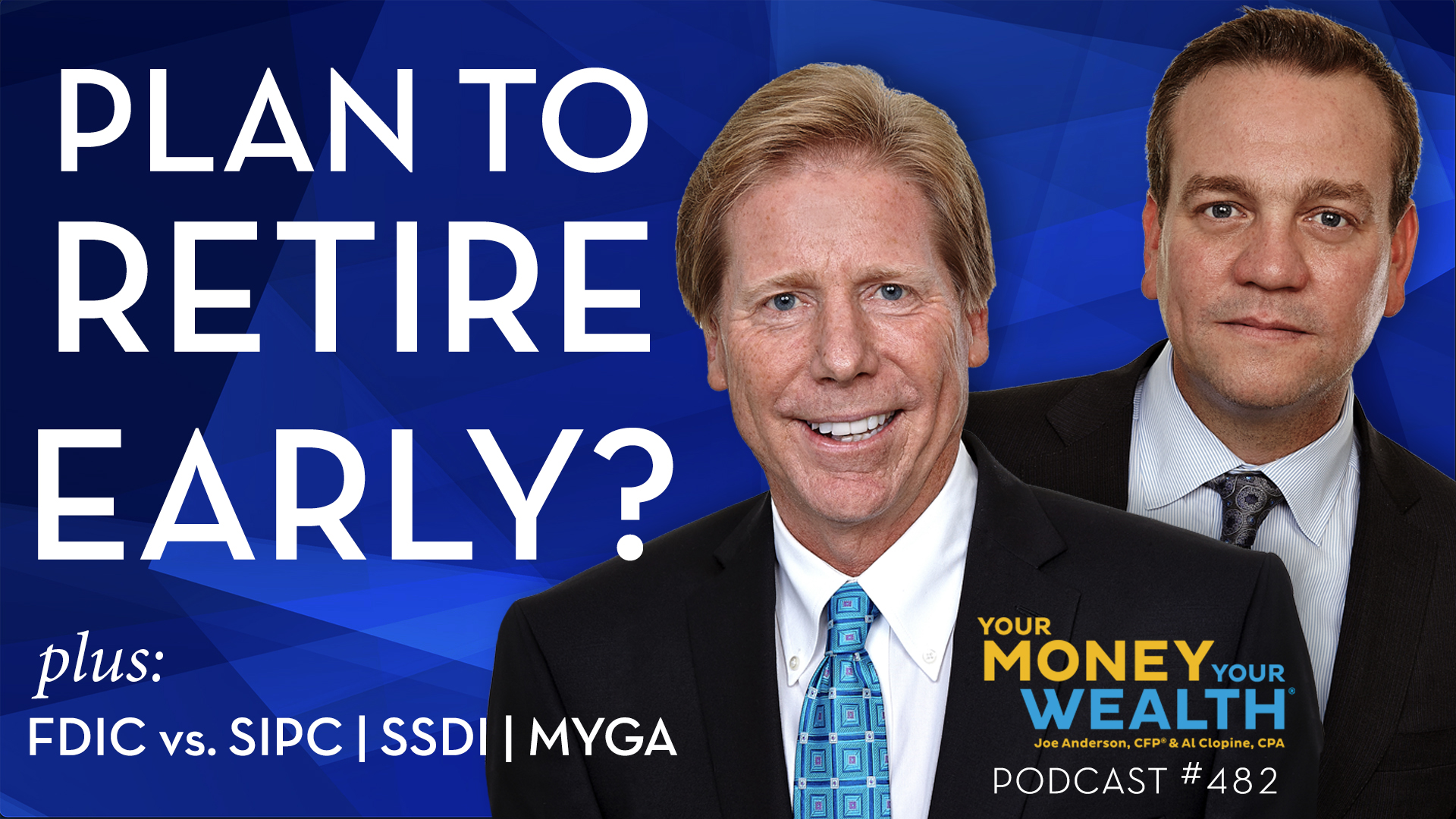
Will building a new home delay Janelle’s early retirement? Can Mike and his wife retire early at ages 50 and 55, and how much should they convert to Roth? Maria and her partner keep their finances separate – can Maria cover her own expenses in early retirement? Plus, Joe and Big Al explain the difference between FDIC insurance and SIPC insurance for Edward, who wonders if he should spread his assets between banks for protection. Fajita Willy needs a spitball on his MYGA (multi-year guaranteed annuities) retirement strategy. Nancy wants to know if mandatory seismic retrofit expenses are tax-deductible. And how should Lee manage Roth contributions and IRMAA now that his Social Security disability has finally been approved and he’s received 5 years of back pay?

Should 70-year-old Bob live off of capital gains and dividends from his mutual funds plus Social Security, or should he sell poor-performing mutual funds for living expenses and reinvest the cap gains and dividends? Which account should Neal’s 76-year-old Mother use for living expenses? Should Neal and his wife fund their Roth 403(b) until retirement, or contribute to the regular 403(b) and then do Roth conversions after they retire? Plus, Joe and Big Al spitball on whether IndyGuy can retire at 64 and Die With Zero, and Rod doesn’t want a spitball, but he’d like a dart on the wall as to whether his retirement savings will last until age 88.
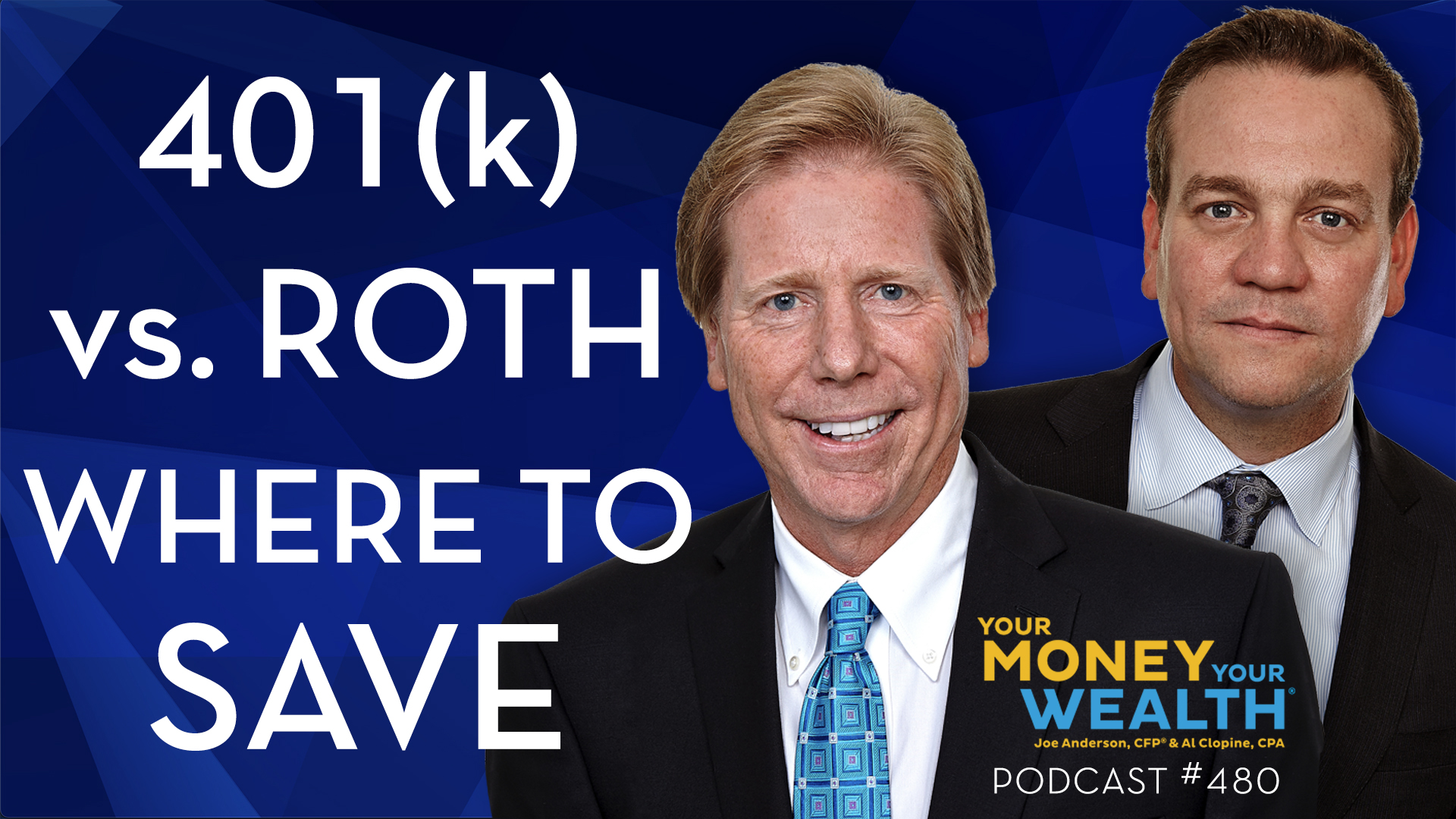
Kyle and his fiancée are in their 30s, have done a great job saving, and are in a high tax bracket. Would it make more sense for them to contribute to their 401(k)s or Roth 401(k)s for retirement? Mick’s wife Pam has both W-2 and sole proprietor income – where should she save for retirement? Plus, Joe and Big Al spitball for Janet on where junk bonds belong in a portfolio, they untangle the pro-rata and aggregation rules concerning 401(k) to Roth conversions for Nancy, and they spitball on whether Cary and Mark should retire now or work for two more years when pensions will provide them an extra $50K a year.
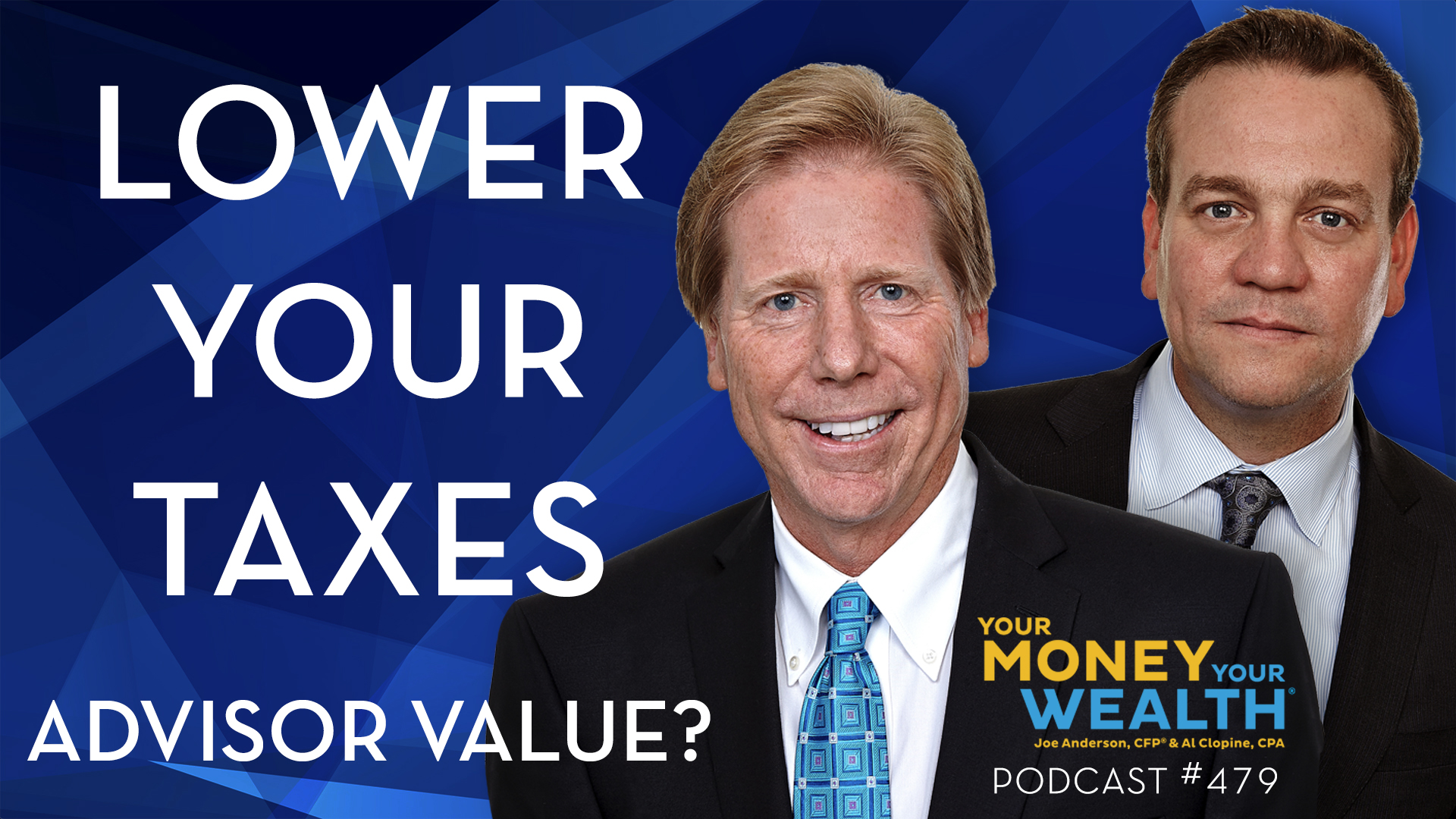
Linda is retired and financially independent. Her advisor suggests she have a separately managed account, specifically for tax loss harvesting. Joe and Big Al spitball on how to save as much tax as possible on retirement withdrawals. Plus, Brian wants to know if it ever makes sense to put IRA money into a brokerage account, rather than doing Roth conversions, so the fellas explain the benefits of tax gain harvesting. Also, why is Robert and Jane’s financial advisor constantly trading in Jane’s professionally managed account? Pete wants to know if flat-fee financial advisors are worth their fee, and Daniel needs financial guidance for his 34-year-old daughter. He’s also considering a free assessment, but he doesn’t really know what he’s getting himself into, so Joe and Al explain.
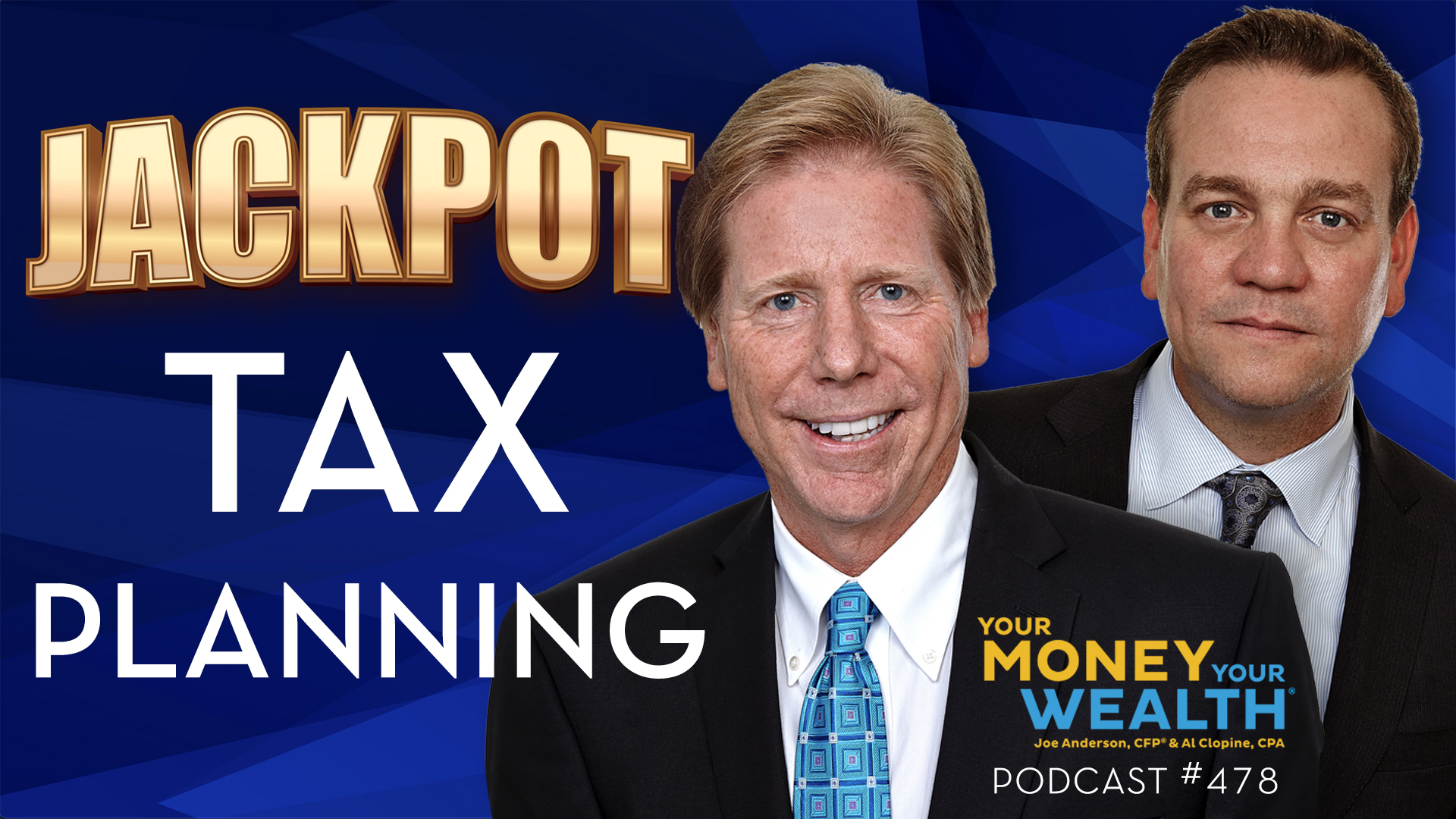
So you won the lottery – congratulations! After you celebrate, should you rip off the band-aid and convert the entire lump sum payment to a Roth IRA? Also, Bucky in WA is required to have the same asset allocation in his traditional and Roth 401(k). Joe and Big Al spitball on his options, along with the pros and cons of consolidating retirement accounts for Scott in NC, and they explain the spousal Roth IRA for Rock Rochester in Manistique, MI. Plus, should Scott in Jackson, MS sign up for the state public employees’ retirement system or a traditional retirement plan? Can Driving Fast, Loving Life in TX speed away in her Porsche from RSU capital gains? And should she and her hubbs retire abroad? Finally, can Sean in Reno, NV buy a million-dollar vacation home in 10 years, and can Jennifer in La Mirada, CA afford to retire after being forced out of a 21-year career?
